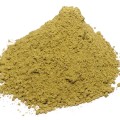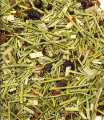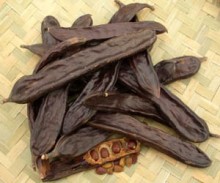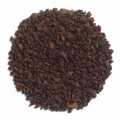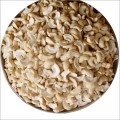 Loading... Please wait...
Loading... Please wait...- Home
- About Us
- Shipping, Returns & FAQ's
- Contact Us
-
For Your Information
- Canadian Customers Have a Choice if Shipping Via UPS
- Aura Cacia Homemade Aromatherapy Recipes
- Bella Nella Altered Art & Paper Crafts Blog
- Forms of Herbal Preparations
- Laundry Tips To Conserve Energy Blog from The Laundress
- The Story of Frontier Natural Products Co-Op
- Sovereign Silver Hydrosol and Aloe Protocol Stops Downward Spiral of Gut Dysbiosis
- Disclaimers
- Recommended Links
- RSS/Recent News
- The Story of Typhoon Housewares
- Reviews/Testimonials
- Raw Ingredients for Mfg
Carob Bean Pod Raw/Roasted Wildcrafted Bulk
Product Description
Carob beans have rightly been coined the healthy alternative to chocolate. Free from the stimulants caffeine and theobromine found in chocolate. Soft, naturally sweet & ready-to-eat!
It is also naturally sweet, so carob products will generally contain substantially less sugar than their chocolate counterparts. Carob pods is free from caffeine and theobromine which can be addictive and can cause allergies. Caffeine and theobromine are stimulants. Caffeine can be transmitted through breast milk and pregnant women are advised to restrict their caffeine intake. Caffeine has analgesic properties but also has side-effects such as anxiety, nervousness, nausea, and palpitations. Caffeine stimulates release of the body's stored energy reserves, meaning that sugars are released into the blood. This can increase the risk of diabetes and possibly obesity and can cause mood swings.
Carob pods are usually processed in their country of origin. They are both dry and wet cleaned. The seeds can be used to produce locust bean gum (ceratonia or carob bean gum). This is a natural product used as a gelling agent, stabilizer or emulsifier in ice cream, dessert fruit filling and salads.
History: Although it has only been used in manufacture and baking in Britain for some 20 years, carob is by no means a newly discovered food. The Greek Theophratus recorded in 4 BC that his contemporaries called the carob the Egyptian fig. Ancient Egyptians used the gummy properties of carob seed by using it as an adhesive in binding mummies and the pods and seeds have been found in Egyptian tombs. The Romans are said to have eaten the pods when green and fresh for their natural sweetness. Many scholars believe that John the Baptist lived on carob pods as" the locust bean" in another name for carob bean pods. Another biblical reference to carob pods is also probable in the parable of the prodigal son who squandered his inheritance and so became a servant, looking after the pigs. "He would gladly have fed on the pods that the swine ate ..."- the pods would most probably have been the pods of the carob trees which would still produce crops in times of drought and famine.<p>Consumption: Commonly, 15 grams of carob powder is mixed with applesauce for children. Adults can take at least 20 grams a day. The powder can be mixed in applesauce or with sweet potatoes. Whole carob pods should be taken with plenty of water. Please note that infant diarrhea must be monitored by a health care professional and that proper hydration with a high electrolyte fluid is critical during acute diarrhea. Carob pods are free from phenylethylamine which can trigger migraines and allergic reactions.
Nutritional Information
Whole carob pods are 80% protein and contains vitamins A, B, B2, B3 and D. It is also high in calcium, phosphorus, potassium and magnesium and contains iron, manganese, barium, copper and nickel. However, it should of course only be eaten in moderation alongside a balanced diet. It has no oxalic acid which prevents the body using calcium and zinc. These minerals are vital to a healthy skin and the presence of oxalic acid in chocolate may be connected to the onset of spottiness noticed by some teenagers on the consumption of larger amounts of chocolate.
Active constituents: The main constituents of carob are large carbohydrates (sugars) and tannins. The sugars make carob gummy and able to act as a thickener to absorb water and help bind together watery stools. Tannins from carob, being water insoluble, do not bind proteins as some tannins do. Carob tannins do bind to (and thereby inactivate) toxins and inhibit growth of bacteria, both of which are beneficial when it comes to diarrhea. Dietary fiber and sugars may make food more viscous in the stomach and thus interfere with reflux of acid into the esophagus.
Botanical Name: Ceratonia siliqua
Origin: Italy/Turkey/Mexico/Spain/USA
Notes: Kosher Certified. Non-irradiated
Specifications are subject to change without notice.
* FDA disclaimer
 Read More About It
Read More About It
You Recently Viewed...
Currency Converter
Choose a currency below to display product prices in the selected currency.




